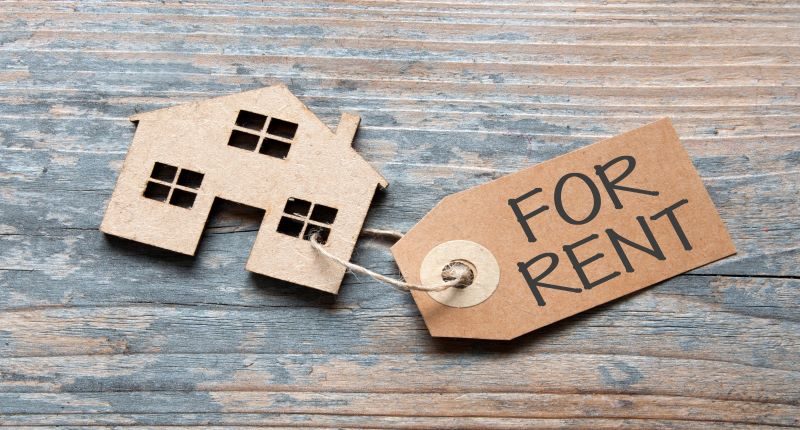- Rents have only grown at half the rate of inflation during the past decade
- Rents didn't keep up with inflation in any capital city, excluding Hobart
- Volume of investors have also halved, likely to result in fewer rental properties
New industry research has shown that rents have grown at only half the rate of inflation over the past decade, in spite of the significant inflationary and rent increases during the past year.
Ongoing anti-investor sentiment is expected to deepen the rental crisis, too, say industry experts from the Property Investment Professionals of Australia (PIPA) and the Property Investors Council of Australia (PICA).
Property academic Peter Koulizos has used data from the Australian Bureau of Statistics Consumer Price Index from June 2012 to June 2022 which shows that rents increased by 11% during the decade. However, inflation rose by 25.6% during the same period, a 15% shortfall.
On an annual basis, rents saw a 1% increase, while inflation increased at over 2% eah year over the decade.
When evaluating at a capital city level, rents didn’t keep up with inflation in each city with the exception of Hobart.
Rental growth over 10 years vs. inflation
| Locality | Cumulative rent growth Jun 12 to 22 |
Cumulative CPI Jun 12 to 22 |
| Australia | +11.0% | +25.6% |
| Sydney | +12.5% | +25.6% |
| Melbourne | +12.5% | +25.6% |
| Brisbane | +12.1% | +25.6% |
| Adelaide | +16.7% | +25.6% |
| Perth | – 2.7% | +25.6% |
| Hobart | +37.9% | +25.6% |
| Darwin | -5.9% | +25.6% |
| Canberra | +15.6% | +25.6% |
Source: Peter Koulizos; Australia Bureau of Statistics 6401.0 Consumer Price Index, Australia
“These results clearly show that rental growth has been below inflation for more than a decade, even with the recent spurt of rental price pressure,” Mr Koulizos said.
“As well as their cash flow taking a hit because of this income versus inflation imbalance, investors have also had to finance a huge variety of additional costs levied by all levels of government over the past decade.

“Governments deserted the supply of affordable rental properties years ago, expecting private investors to simply take over this responsibility, however more and more investors are deciding that it’s just not worth it.”
The analysis noted that rents in Sydney are at the same level as 2016, with Melbourne the same as 2018.
Number of investors halved
PIPA Chair and fellow The Property Tribune contributor Nicola McDougall noted that the volume of investors in the market was below historical averages for half of the research period, primarily due to lending restrictions, however, rents remained well below inflation.
“The lending restrictions in 2017 unfairly targeted investors, with many unable to transact for a number of years,” Ms McDougall said.
“From that period of on, the supply of rental properties started to dwindle because investors simply couldn’t qualify for finance – but this research shows that rents have not kept up with inflation.
Nicola McDougall, PIPA Chair
“Since the start of the pandemic, investors were initially asked to ‘take one for the team’ and supply free or low-cost housing to their tenants; are continually expected to pay higher costs for everything property-related – from council rates to stamp duty; and will soon be ‘double-taxed’ by the Queensland Government.

“It’s little wonder that we have heard of investors selling their properties in droves over the past two years because many have simply had enough.
“And let’s not forget that 71 per cent of investors own one property and 90 per cent own just two – this has always been the case – contrary to popular opinion about a plethora of mega-rich people who seemingly own dozens of properties.”
Ben Kingsley, PICA Chair, added that private owners of rental properties had been shouldering much of the market in recent decades, with governments axing billions from public housing funding.
“These rental providers have also been pressured to carry the full financial burden of rising interest rates, new tenancy reforms, eviction moratoriums, land tax reforms, huge and costly delays in tribunal dispute hearings, and yet over the past 10 years, outside of Hobart, rents haven’t been keeping pace with inflation,” Mr Kingsley said.
“The current rental crisis is the result of government inaction and market interventions. There is no question that governments, at all levels, have played the biggest role in the rental supply mess – but, year after year, they expect private rental providers to simply pay more and more.
Ben Kingsley, PICA Chair

Mr Kingsley reiterated that many investors are getting increasingly frustrated, which will likely result in more selling up their investment properties.
“Our industry has been warning State Governments for years that every time they change legislation in their markets, they upset the market balance and there are unintended consequences – we are seeing that play out now and there appears to be more silly legislation to come.
“We just pray they wake up to themselves and start valuing the vital role that ‘mum and dad investors’ play in the provision of housing in this country – or step up to the plate and come up with a viable and achievable plan to greatly increase the supply of rental properties in this country.”








